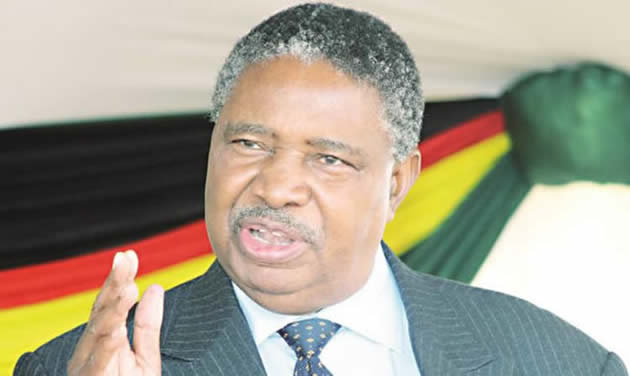Indigenisation laws empower the disadvantaged: VP Mphoko

Freeman Razemba Senior Reporter
The country’s thrust on indigenisation and economic empowerment seeks to empower disadvantaged Zimbabweans, Vice President Phelekezela Mphoko said yesterday.
He said the Zanu-PF Government ensured the issue of economic empowerment was enshrined in Section 14 of the new Constitution.
VP Mphoko said this at the Inaugural National Economic Empowerment Conference in Harare yesterday which was held under the theme: “Accelerating Economic Empowerment: Localising the Ten Point Plan”.
“To date a number of programmes to economically empower and emancipate indigenous Zimbabweans from poverty and economic marginalization have been undertaken. Chief among this is the land reform programme which resulted in majority of indigenous Zimbabweans accessing and owning land,” he said.
VP Mphoko said various strategies were adopted and implemented under the land reform programme as part of deepening the economic empowerment agenda.
Some of the strategies, he said, included the introduction of preferential procurement that required Government entities to buy at least 50 percent of their goods from local businesses.
He said Government designation of certain sectors such as agriculture — primary production of food and cash crops, transport, retail and wholesale trade and grain milling, milk processing and the establishment of Community Share Ownership Trusts were some of the strategies meant to benefit indigenous businesses.
“The major challenges faced in implementing the above programmes over the past years has been that of inadequate funding,” VP Mphoko said. “Furthermore, resource endowments differ from one district to another as well as from one province to another; hence the framework to come out of this conference must ensure that each district has its own specific economic empowerment strategies tapping in from the 10 Point Plan.”
He said the National Indigenisation and Economic Empowerment Fund also remained under-capitalised, despite the fact that the legislation provided for the introduction of an empowerment levy.
VP Mphoko said the conference was expected to put in place a framework that would enable them to access ideas on how they could move forward to economically empower Zimbabweans.
He said the aim was to come up with a National Economic Empowerment Strategy, which had input from all stakeholders.
“Once the National Economic Empowerment Strategy has been adopted, the pace of implementation will be increased so that the objectives will be realised within the shortest possible set time frames.
“Some of the targeted areas as per the 10 Point Plan will include revitalising agriculture and the agro-processing value chain, advancing beneficiation and or value addition to the agricultural and mining resource endowment, focusing on infrastructure development particularly in the energy, water, transport and ICTs sub sectors, unlocking the potential of Small to Medium Enterprises, encouraging private sector investments and promoting joint ventures and public private partnerships to boost the role and performance of state owned companies,” VP Mphoko said.
The conference was attended by Local Government, Public Works and National Housing Minister Cde Saviour Kasukuwere, Youth Development, Indigenisation and Economic Empowerment Minister Cde Patrick Zhuwao, Harare Provincial Minister Cde Miriam Chikukwa, Zanu PF Harare provincial chairman Senator Charles Tawengwa, businessman Dr Phillip Chiyangwa and senior party and Government officials.
Speakers said there was no going back on the empowerment drive, urging Government to ensure more was done to economically empower locals.










Comments